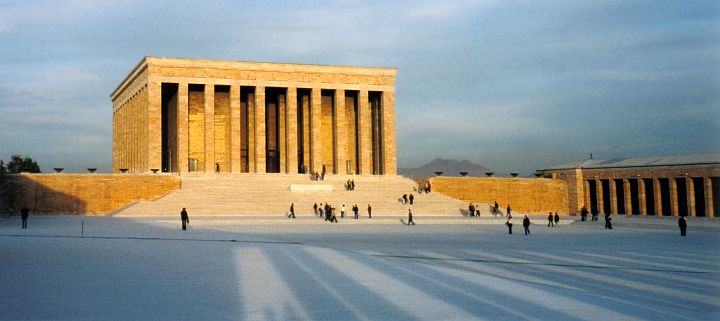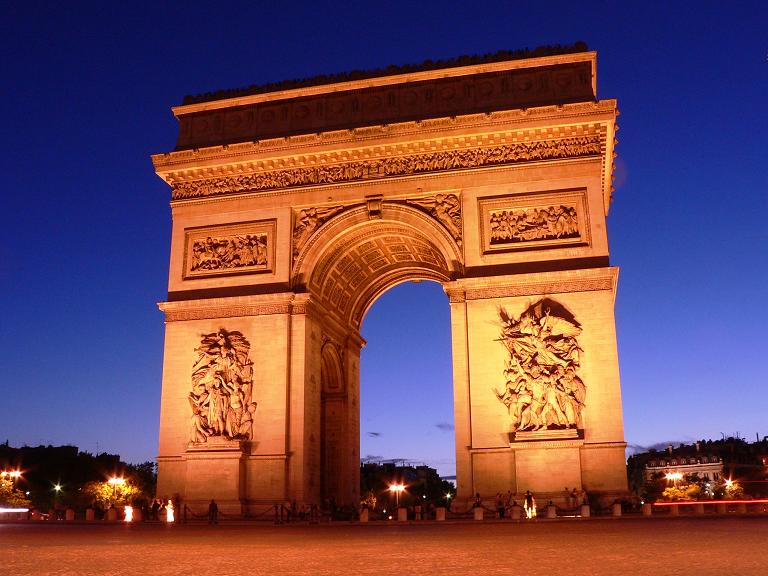It was a stressful trip to Vienna, coming here straight from the Bucharest Nato summit, where I had slept through the unique chance of attending an early morning lecture by George Bush (having worked all night to complete and send out a discussion paper on Turkey’s Dark Side early in the morning). I sometimes enjoy conferences and among such events this Bucharest jamboree – a big conference organised by GMF always in parallel to the annual Nato summit – was certainly noteworthy for the prominence of its speakers. Then again, it helps having slept, or even the most interesting event can turn into a painful exercise of trying to stay awake (the worst thing about this event was the cameras zooming in on the audience and displaying their faces on huge screens hung up next to the speakers – this was NOT a conference that was kind to a secret nap in the last row),
Thus I noticed, on the way back from Bucharest, before dozing off on the plane, that there were really only three things that I took away from this rich event: I had had coffee with an old friend from Berlin, sneaking out of the conference centre (and skipping most of the session with the Afghan president). I had another occasion to marvel at Nato’s security operation, essentially closing off most of the streets in the Romanian capital so that guests were taken on empty roads around town. And I had a short but interesting chat with Wolfgang Ischinger, the Kosovo negotiator and German ambassador to London, sharing a taxi with him on the way to the airport. Efficient networking this was not …
My mood was not helped by the fact that my father had been hospitalised in Vienna due to a heart problem, which looked complicated, and had just been operated. But then in fact there was another urgent reason to come to Vienna, for what would otherwise have been a joyful occasion: to present – for the first time – the whole Balkanexpress – Return to Europe documentary film project to a broader audience.
The event, hosted by ORF, was well organised by Erste Foundation. Austrian Chancellor Alfred Gusenbauer turned up, as did the CEOs of Erste Bank, OMV (the Austrian oil company), the Austrian National Broadcaster ORF and many others – a who-is-who of people interested in and involved in SEE in Vienna. The event became even more colourful as a result of the many guests from the region, including many members of the generation of Balkan change-lovers whom we featured in our films (you can see pictures of the event and who actually came here)
I delivered my introductory presentation. I had been uncertain until the last moment whether the trick of embedding video clips from the films into a power point presentation would actually work: it would be embarrassing to stand on a podium in front of all these august Austrians, having to improvise because the technology mixes up clips or the sound cannot be heared. I had prepared some lines to laugh away any mishap or confusion. But, when everything worked, I noted the usefulness of strong images. It is so much easier to move people emotionally when there is a moving picture.
Following the event, on the afternoon of the second day, I gave a little interview (see below). There is also a nice little trailer that sums up the whole atmosphere nicely.
Now we can only hope that TV audiences will also want to see the films. And that the films will soon be available also in English. I will keep you informed where and when you will be able to see them!
[MEDIA=2]
Balkan Express – Talking Balkans – Symposium in Vienna on 3-4 April 2008 © 2008 ERSTE Foundation/Igor Bararon. All rights reserved.
[MEDIA=3]
Balkan Express – Talking Balkans – Symposium in Vienna on 3-4 April 2008. Interview with Gerald Knaus. © 2008 ERSTE Foundation/Igor Bararon. All rights reserved.





